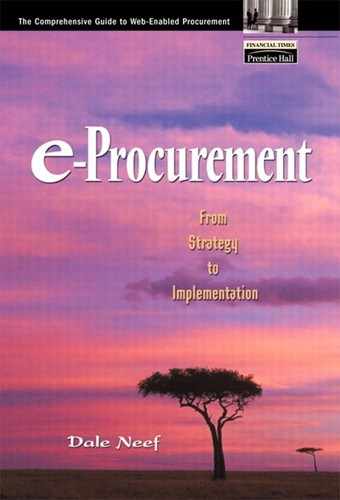Vendor Rationalization
All of this means that the value and need for strategic sourcing has come under fire. The tendency for trading hubs and the e-marketplace is to move to many suppliers instead of to just a few. At issue is the fact that the whole value of vendor rationalization and strategic sourcing comes from consolidation and leverage of a company’s best and most trusted suppliers. The basis for successful strategic sourcing is therefore to restrict the number of preferred vendors, and yet with the expansion of e-market portals, the trend is moving in the opposite direction. The logic behind the Internet-based auction is to treat all materials as commodities, driving prices down. That means, generally, the more vendors, the fiercer the competition, and the higher the likelihood of a lower price for the buyer. In this new world, vendors are no longer true partners at all.
Most analysts believe that in this type of buying environment, suppliers will increasingly need to show buying companies that there is merit to a close and personal relationship, and that buyers should forgo the low-price auction approach in favor of a service that is more reliable, or that has other distinct advantages. But in tandem with the competitive forces of consolidation that are already starting to trim down the number of vertical trading hubs, many analysts suggest that, in fact, indirect e-procurement through these e-markets may follow the same path as the EDI networks did for direct goods over the past 20 years, with the number of vendors decreasing rather than increasing, as trading hubs move to clarify their product offerings and provide distinctive, value added services. After all, it is in the sellers’ best interest to avoid the low-cost race to the bottom.
